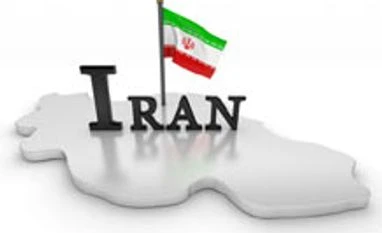Iran has offered to sell state assets to foreigners, saying it would cut the government's role in the economy. It also pledged a tight monetary policy as it sought to attract billions of dollars of investment from abroad after over a decade of isolation.
At a business conference in Vienna this week, the first such event since last week's deal between Tehran and world powers on its nuclear programme, top Iranian officials outlined an economic policy package designed to win foreign investment.
The package was strikingly pro-market - many of the policies would not have been out of place in a centre-right European government. If implemented, they could move Iran's economy well beyond the tight restrictions and heavy state involvement that followed its 1979 Islamic Revolution.
"The government, the parliament are trying to remove all the obstacles for free investment and for reducing interference of government in private investment," said Minister of Industry, Mines and Trade Mohammad Reza Nematzadeh.
With a young, well-educated population of just under 80 million and some of the world's largest energy reserves, Iran looks likely to provide huge investment opportunities. Officials at the conference said Tehran had identified nearly 50 oil and gas projects worth $185 billion (£119 billion) that it hoped to sign by 2020.
Under the nuclear deal, sanctions that have stifled Iran's economy are to be lifted when the International Atomic Energy Agency verifies that Iran is honouring its side of the bargain.
Nematzadeh said Iran expected verification in under three months, and that it believed it could rejoin the SWIFT global electronic payments system -- a key step to enable inflows of foreign money -- three months after sanctions were repealed.
Foreigners will then be welcome to enter Iran's economy through joint ventures -- including those in the banking sector -- and direct investment, such as participation in tenders to buy stakes in state companies, he said.
The national oil company will be off-limits to investors but petrochemical and refining firms may be partly sold off, and parliament has given permission for the sale of assets or projects such as hospitals, schools and highways, he added.
Over the past decade, the government has sold off stakes in state companies worth tens of billions of dollars. But its privatisation programme has not been fully effective because most of the stakes have gone to state-linked bodies such as pension funds and foundations.
Iranian bankers believe that if foreign investors are allowed to enter the Islamic Republic, they will end up buying assets from the cash-strapped funds and foundations, completing the privatisation process.
During the sanctions years, the government often favoured state firms over private ones on the grounds of economic survival. Nematzadeh said this was ending, and parliament had agreed that all firms would be treated equally for tax purposes.
REFORMS
For privatised companies to succeed, however, they may need to reduce staff. This might put them in conflict with Iran's strict labour rules, a legacy of the revolution; a complex, unpredictable legal system adds to risks for foreign companies.
At a business conference in Vienna this week, the first such event since last week's deal between Tehran and world powers on its nuclear programme, top Iranian officials outlined an economic policy package designed to win foreign investment.
The package was strikingly pro-market - many of the policies would not have been out of place in a centre-right European government. If implemented, they could move Iran's economy well beyond the tight restrictions and heavy state involvement that followed its 1979 Islamic Revolution.
"The government, the parliament are trying to remove all the obstacles for free investment and for reducing interference of government in private investment," said Minister of Industry, Mines and Trade Mohammad Reza Nematzadeh.
With a young, well-educated population of just under 80 million and some of the world's largest energy reserves, Iran looks likely to provide huge investment opportunities. Officials at the conference said Tehran had identified nearly 50 oil and gas projects worth $185 billion (£119 billion) that it hoped to sign by 2020.
Under the nuclear deal, sanctions that have stifled Iran's economy are to be lifted when the International Atomic Energy Agency verifies that Iran is honouring its side of the bargain.
Nematzadeh said Iran expected verification in under three months, and that it believed it could rejoin the SWIFT global electronic payments system -- a key step to enable inflows of foreign money -- three months after sanctions were repealed.
Foreigners will then be welcome to enter Iran's economy through joint ventures -- including those in the banking sector -- and direct investment, such as participation in tenders to buy stakes in state companies, he said.
The national oil company will be off-limits to investors but petrochemical and refining firms may be partly sold off, and parliament has given permission for the sale of assets or projects such as hospitals, schools and highways, he added.
Over the past decade, the government has sold off stakes in state companies worth tens of billions of dollars. But its privatisation programme has not been fully effective because most of the stakes have gone to state-linked bodies such as pension funds and foundations.
Iranian bankers believe that if foreign investors are allowed to enter the Islamic Republic, they will end up buying assets from the cash-strapped funds and foundations, completing the privatisation process.
During the sanctions years, the government often favoured state firms over private ones on the grounds of economic survival. Nematzadeh said this was ending, and parliament had agreed that all firms would be treated equally for tax purposes.
REFORMS
For privatised companies to succeed, however, they may need to reduce staff. This might put them in conflict with Iran's strict labour rules, a legacy of the revolution; a complex, unpredictable legal system adds to risks for foreign companies.
)